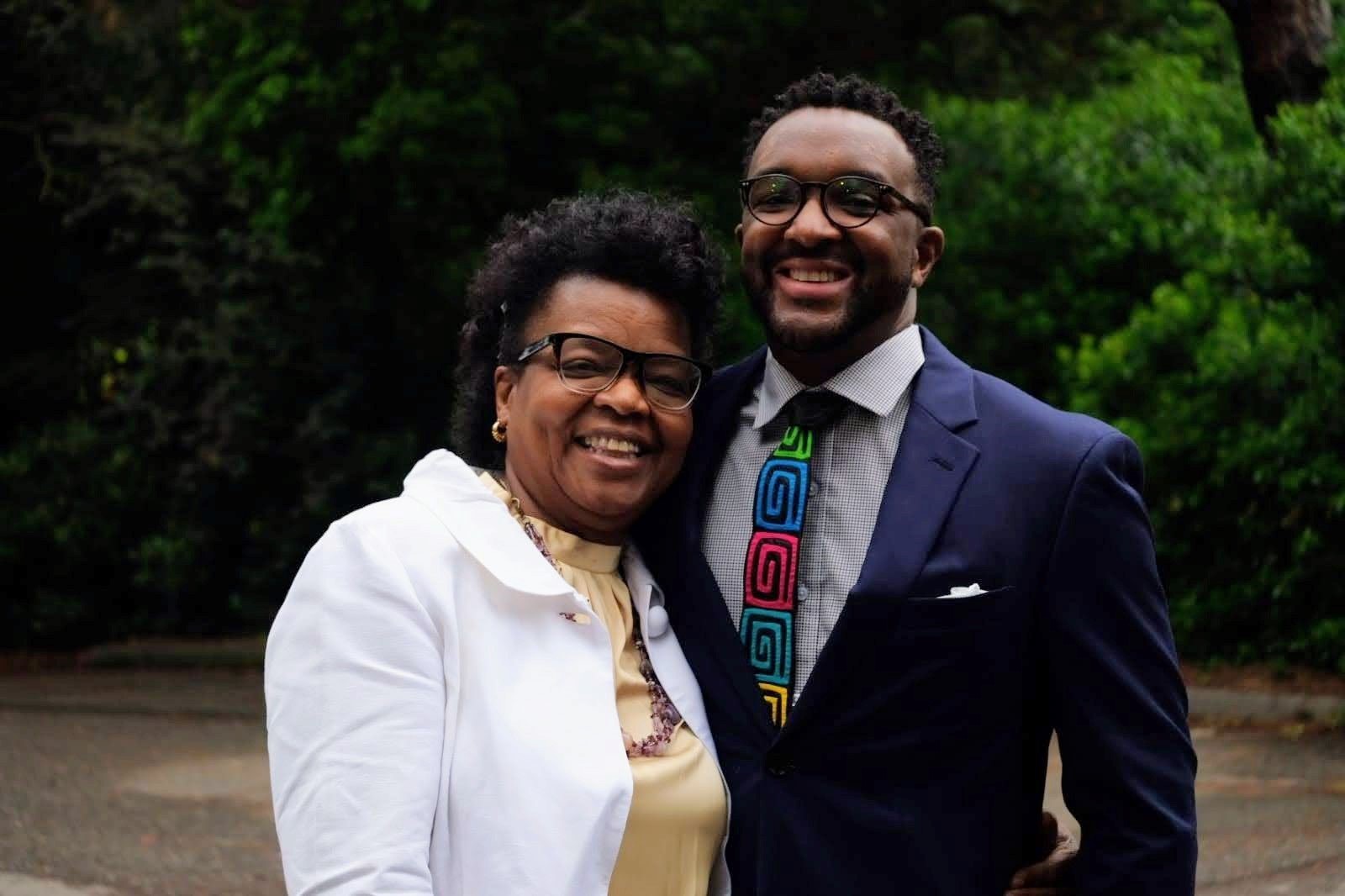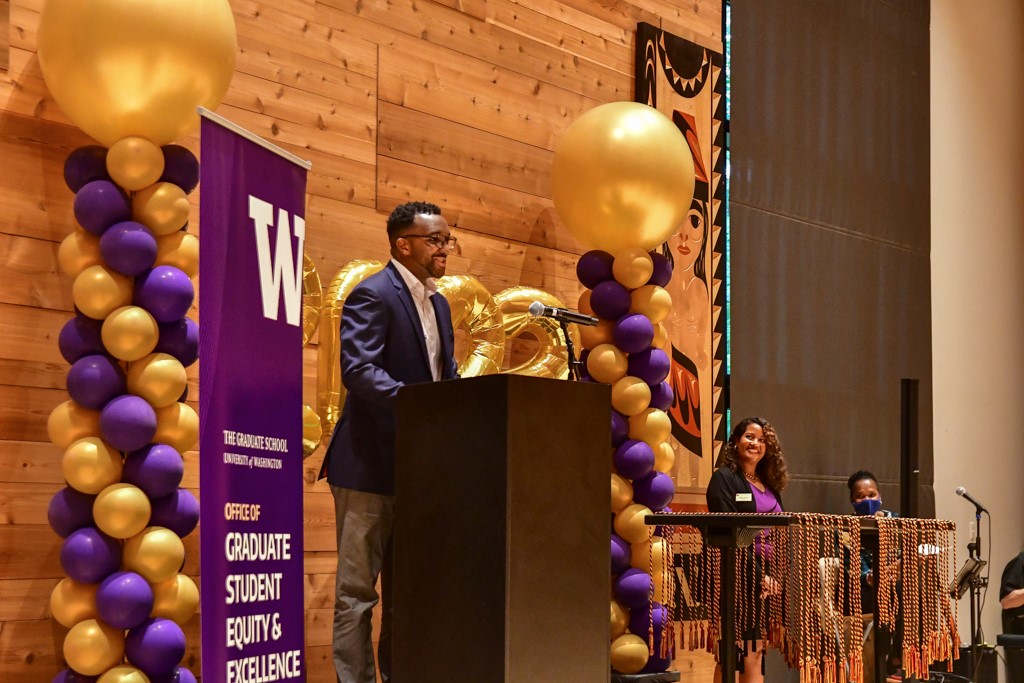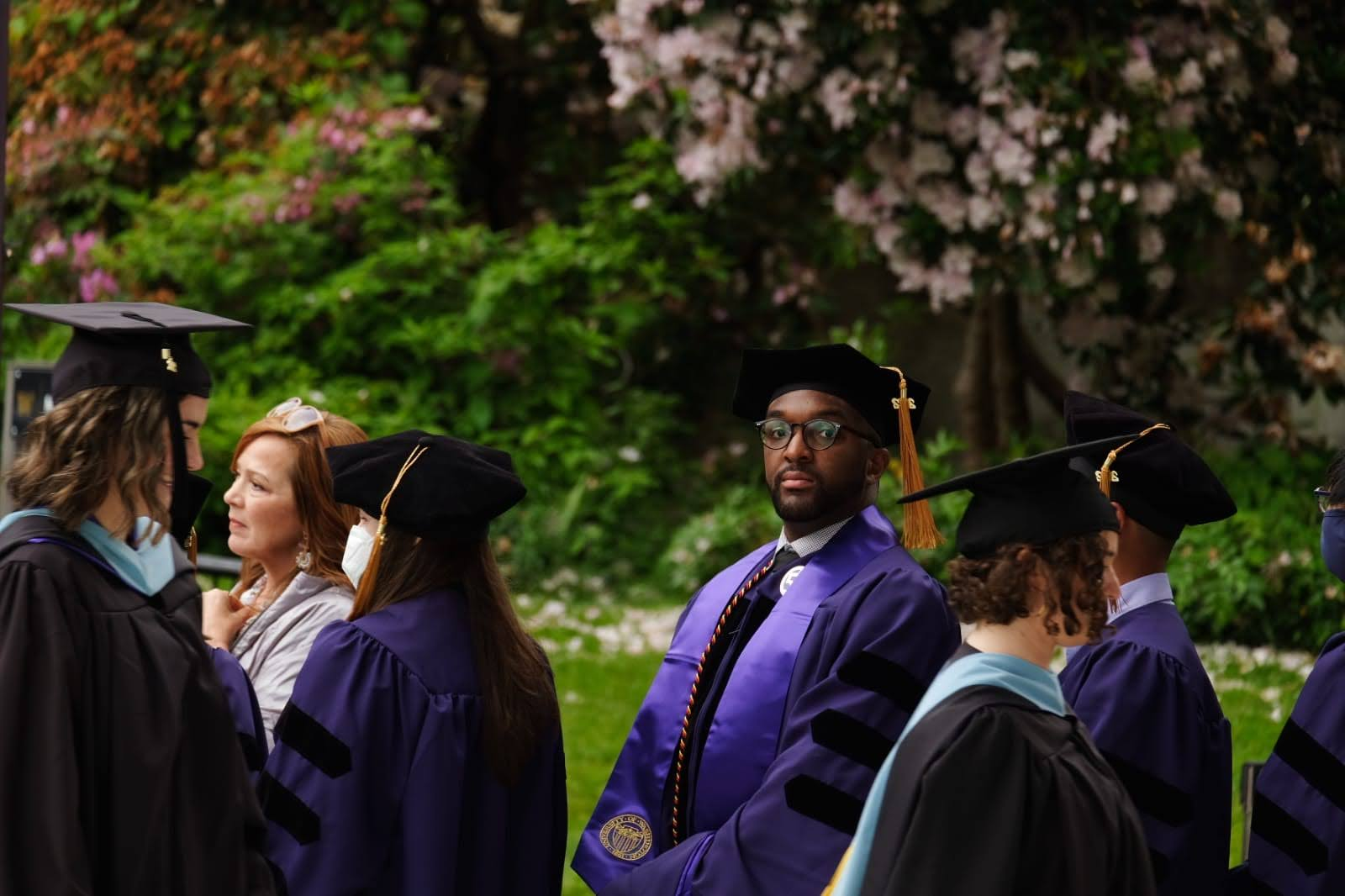Shaping Change: Lamar Foster’s Journey from Intersectionality to Impact
How a Childhood Lesson on Identity Led to a Career in Advocacy and Data Science
Lamar Foster learned about intersectionality as a young child before he read Kimberlè Crenshaw’s scholarship in college. His mother, a Black Spanish-speaking immigrant woman, articulated to him how her intersecting identities created disadvantages when it came to looking for work or simply trying to exist in the United States.
“Hearing her speak about her disadvantages influenced how I saw the world and drew me to working in a way that gives back to communities marginalized due to their race, gender, language, or other social axes of difference,”

Lamar and his mother Diana Foster.
Lamar’s observations of his mother’s experience and early understanding of diversity, equity and inclusion underpinned his drive to create positive change. Lamar saw education as a necessary tool along this pathway to change, and graduate school at the University of Washington became a place where he could connect with people, build community and begin to make a difference.
Choosing the UW
While working on his master’s degree in Pittsburgh, PA, Lamar expressed his frustrations to a mentor about the deep inequities in education and his desire to build resources to address them. His mentor encouraged him to explore this interest through a Ph.D. program and listed UW as a potential contender.
“I was drawn to UW because of its strong reputation in the field of education and its commitment to diversity, equity, and inclusion” Lamar says.
After deciding to attend UW, he spent the next five years growing intellectually, gaining a deep understanding of organizational conditions and the importance of leadership. Through his Ph.D. in Educational Policy, Organizations, and Leadership, Lamar explored the connections between organizational leadership and psychology, education, and business operations. His teaching and research assistantships not only enriched his academic experience, but also equipped him with transferable skills that would later prove instrumental in his career as a data scientist.

Discovering the Office of Graduate Student Equity & Excellence
While at UW, Lamar was heavily involved with the Office of Graduate Student Equity & Excellence (GSEE), formerly GO-MAP, and became part of Outreaching Grads.
“Dr. Carolyn Jackson [Director of GSEE] basically sold me on UW and was a constant presence in my life as a UW student,” Lamar says. Through his interactions with Dr. Jackson and the GSEE community, he felt a strong desire to contribute and make an impact beyond the classroom, leading him to seek out roles that allowed him to engage with and influence the university community on a broader scale.
“I wasn’t content with just writing papers and studying — I knew I wanted to make an impact on a broader scale,” Lamar says. Dr. Jackson informed him of the opportunity to join Outreaching Grads, to influence graduate students, engage with prospective students, all while serving as a resource and contact person for the Graduate School.
Lamar also served the UW community as a Diversity Ambassador for the Office of Student Diversity and Inclusion within the College of Education. This experience fueled Lamar’s desire to have a meaningful impact on the graduate student population, particularly in recruiting and retaining students with diverse backgrounds.
“It brought me a lot of satisfaction to know I was responsible for bringing diverse talent to UW,” Lamar says.
A career path for positive change
Since graduating in 2022, Lamar has been a data scientist on the People Analytics team at the Bill and Melinda Gates Foundation. His work aligns with his earlier training as a social scientist, where he studied people’s behavior and the factors that contribute to organizational effectiveness. In this role, Lamar focuses on understanding organizational dynamics, including employee sentiments, manager and employee relations, and organizational routines. Due to the Gates Foundation’s global presence, Lamar has used the skills he learned at the UW to make a positive impact for people around the world. Lamar has served as a board member of Casa Latina, a local, Seattle-based organization that advocates for Latino immigrants’ rights and provides resources to the community. His involvement with Casa Latina stems from his early observations of his mother’s immigrant experience, his work in racial equity, his Afro-Latino background and his dedication to advancing social justice causes.
“People think of me in one respective area, but I’m multifaceted and can transfer my skills learned from my Ph.D. to my work now,” Lamar says.

One key lesson he shares with prospective graduate students is the importance of learning to say both yes and no to opportunities. By being open to new challenges, Lamar has been able to grow and develop new skills, ultimately leading to more opportunities for personal and professional growth — both within his career and by giving back to the community. Additionally, he has learned the importance of self-care and knowing his capacity limitations, hence learning when to say no.
“Doubts and insecurities come with new challenges, but embrace these opportunities as learning experiences,” Lamar says. “Sooner than later, you will find yourself with many opportunities, at that point you will have to learn the art and science of saying no.”
By: Tatiana Rodriguez, UW Graduate School
Published on September 20, 2024